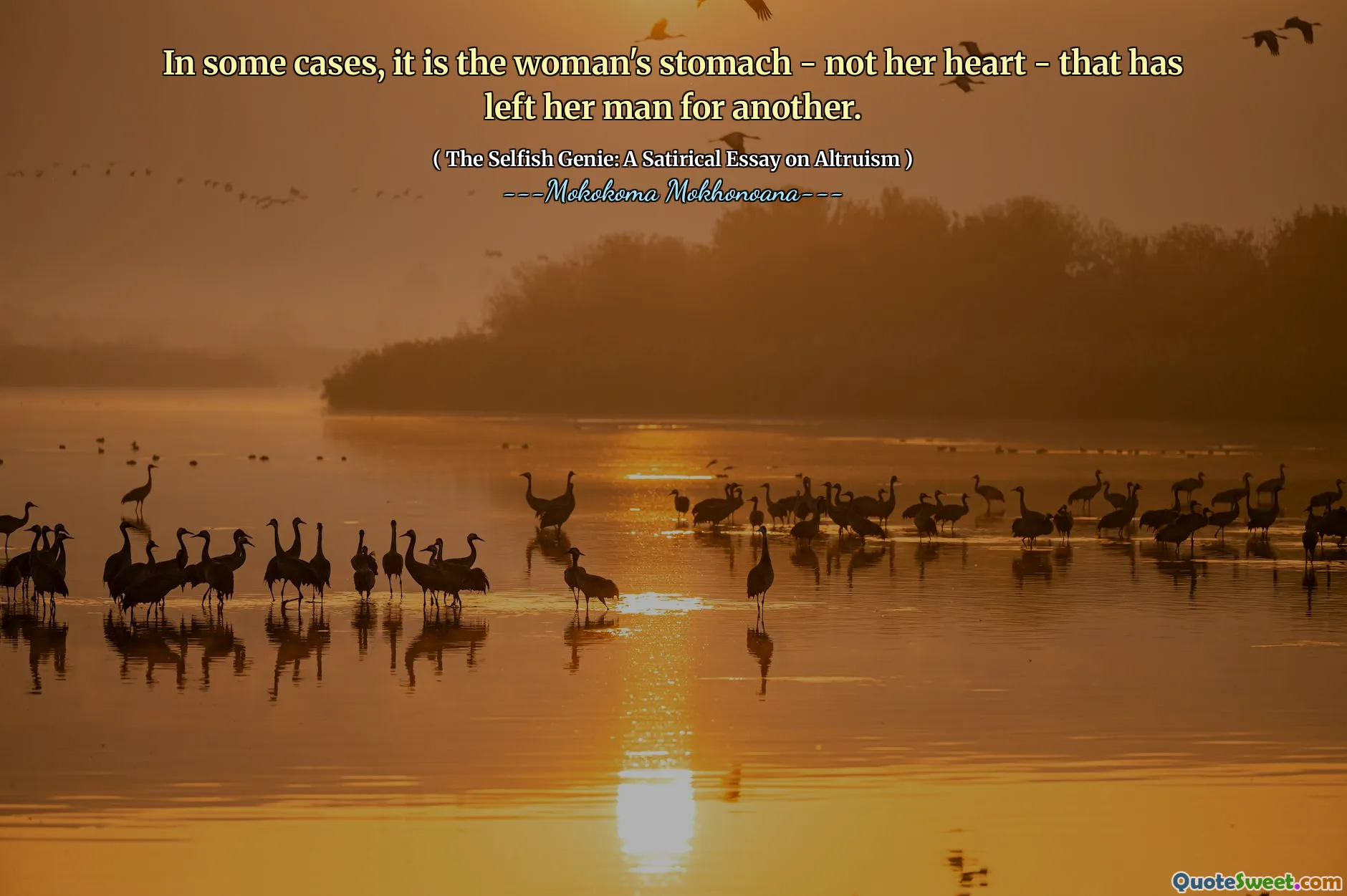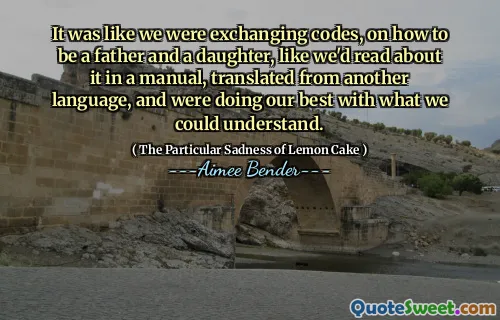
In some cases, it is the woman's stomach - not her heart - that has left her man for another.
This quote presents a satirical and unconventional perspective on the complexities of romantic relationships. It suggests that practical, perhaps materialistic, reasons can be as influential as emotional or romantic ones in the decisions people make about their partners. The reference to the 'woman's stomach' symbolically points to the basic human necessity of sustenance and comfort, implying that comfort, provision, or survival instincts may play a crucial role in relationship dynamics. This turning away from the more traditional notion of the heart representing love and emotional commitment encourages readers to reconsider how often pragmatic concerns, like stability and care, underpin deeply personal decisions. It challenges the idealized perception of relationships as purely emotional bonds, instead highlighting that foundational needs and desires—sometimes subconscious or socially conditioned—bear significant influence. Moreover, the quote resonates with human complexity and the multifaceted motivations behind attachment and detachment. By choosing a somewhat humorous and provocative comparison, the quote invites reflection on the intricate interplay between love, need, and practicality in human life. It raises questions about societal expectations, gender roles, and the genuine priorities people have in partnerships. Within the context of "The Selfish Genie: A Satirical Essay on Altruism" by Mokokoma Mokhonoana, which aims to explore self-interest and altruism with satirical insight, this reflection fits well, calibrating our understanding of relationships beyond romantic idealism toward a more grounded, perhaps cynical, reality. Ultimately, it encourages an analytical and open-minded approach to why people stay together or part ways, revealing that matters of the heart might sometimes be matters of the stomach.






